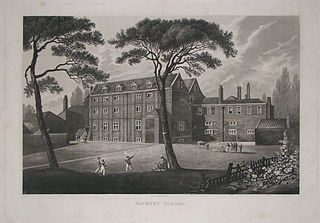Related Research Articles

Edward the Confessor was one of the last Anglo-Saxon English kings. Usually considered the last king of the House of Wessex, he ruled from 1042 to 1066.

The Keeper or Master of the Rolls and Records of the Chancery of England, known as the Master of the Rolls, is the President of the Civil Division of the Court of Appeal of England and Wales and Head of Civil Justice. As a judge, the Master of the Rolls is second in seniority in England and Wales only to the Lord Chief Justice. The position dates from at least 1286, although it is believed that the office probably existed earlier than that.
The title of Earl of Gloucester was created several times in the Peerage of England. A fictional earl is also a character in William Shakespeare's play King Lear.
The Master of the Jewel Office was a position in the Royal Households of England, the Kingdom of Great Britain and the United Kingdom. The office holder was responsible for running the Jewel House, which houses the Crown Jewels. This role has, at various points in history, been called Master or Treasurer of the Jewel House, Master or Keeper of the Crown Jewels, Master or Keeper of the Regalia, and Keeper of the Jewel House. In 1967, the role was combined with Resident Governor of the Tower of London.

The Lieutenant of the Tower of London serves directly under the Constable of the Tower. The office has been appointed at least since the 13th century. There were formerly many privileges, immunities and perquisites attached to the office. Like the Constable, the Lieutenant was usually appointed by letters patent, either for life or during the King's pleasure.

Justice of the Common Pleas was a puisne judicial position within the Court of Common Pleas of England and Wales, under the Chief Justice. The Common Pleas was the primary court of common law within England and Wales, dealing with "common" pleas. It was created out of the common law jurisdiction of the Exchequer of Pleas, with splits forming during the 1190s and the division becoming formal by the beginning of the 13th century. The court became a key part of the Westminster courts, along with the Exchequer of Pleas and the Court of King's Bench, but with the Writ of Quominus and the Statute of Westminster, both tried to extend their jurisdiction into the realm of common pleas. As a result, the courts jockeyed for power. In 1828 Henry Brougham, a Member of Parliament, complained in Parliament that as long as there were three courts unevenness was inevitable, saying that "It is not in the power of the courts, even if all were monopolies and other restrictions done away, to distribute business equally, as long as suitors are left free to choose their own tribunal", and that there would always be a favourite court, which would therefore attract the best lawyers and judges and entrench its position. The outcome was the Supreme Court of Judicature Act 1873, under which all the central courts were made part of a single Supreme Court of Judicature. Eventually the government created a High Court of Justice under Lord Coleridge by an Order in Council of 16 December 1880. At this point, the Common Pleas formally ceased to exist.
The English College, Lisbon was a Roman Catholic seminary that existed from the 17th century to the 20th century.

Newcome's School was a fashionable boys' school in Hackney, then to the east of London, founded in the early 18th century. A number of prominent Whig families sent their sons there. The school closed in 1815, and the buildings were gutted in 1820. In 1825 the London Orphan Asylum opened on the site. Today the Clapton Girls' Academy is located here.

Robert Walpole (1781–1856) was an English classical scholar.
The Evangelical Magazine was a monthly magazine published in London from 1793 to 1904, and aimed at Calvinist Christians. It was supported by evangelical members of the Church of England, and by nonconformists with similar beliefs. Its editorial line included a strong interest in missionary work.
The Phytologist was a British botanical journal, appearing first as Phytologist: a popular botanical miscellany. It was founded in 1841 as a monthly, edited by George Luxford. Luxford died in 1854, and the title was taken over by Alexander Irvine and William Pamplin, who ran it to 1863 with subtitle "a botanical journal".
William de Haseley was an English monastic writer. He was sub-prior of the Benedictine community at Westminster Abbey and master of the novices. He entered the monastery in about 1266 and compiled the Consuetudinarium Monachorum Westmonasteriensium for his abbot, Richard de la Ware.
References
- ↑ Harvey, Barbara F. (2004). "Haseley, William of (d. in or before 1283), monastic writer". Oxford Dictionary of National Biography (online ed.). Oxford University Press. doi:10.1093/ref:odnb/12545.(Subscription or UK public library membership required.)
